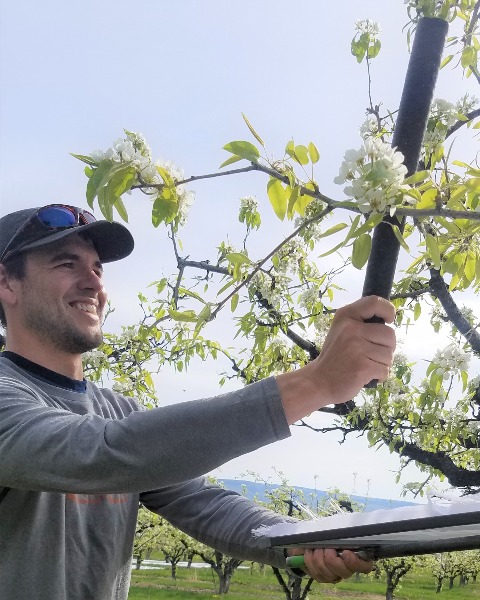Student Poster Display
Plant-Insect Ecosystems
Student
Student Competition
D3095: Evaluating impacts of soil quality and crop rotation on arthropod assemblages in northwestern Washington

Adriana Barsan (they/them/theirs)
Graduate Research Assistant
Washington State University, Washington- DG
Deirdre Griffin LaHue
Washington State University
Mount Vernon, Washington 
Louis Nottingham
Research Assistant Professor
Washington State University
Mount Vernon, Washington
Presenting Author(s)
Co-Author(s)
Fresh-market potato production contributes significantly to the agricultural industry as high-value crops in northwestern Washington. Growing blemish-free potatoes requires intensive management practices to prepare the soil for planting as well as hilling throughout the growing season. To avoid negative soil health consequences (e.g., compaction and pH imbalances), potato growers utilize a 3-5 year crop rotation to increase essential nutrients, suppress soil-borne disease and increase crop yields. The Long-Term Agroecological Research and Extension (LTARE) site investigates the impact of four management types that follow a gradient of soil disturbance and organic matter inputs on soil quality characteristics in a four-year, potato-based rotation. This observational study examines sampling protocols to evaluate the effects of soil quality and crop rotations on above- and belowground arthropod assemblages over time. To explore these impacts, we deployed five sampling methods (pitfall traps, soil microarthropod sampling, vacuum sampling, sticky cards, and visual counts) throughout the growing season. While the data is still being collected and processed, we will identify arthropods to functional group and family. For each crop, we will evaluate the aboveground arthropod recruitment by the abundance and diversity of predators, herbivores, and beneficial insects. The implications of this research might provide additional insight on the linkages between soil management practices and arthropods assemblages, as well as their agroecological contributions, in northwestern Washington.

.png)

